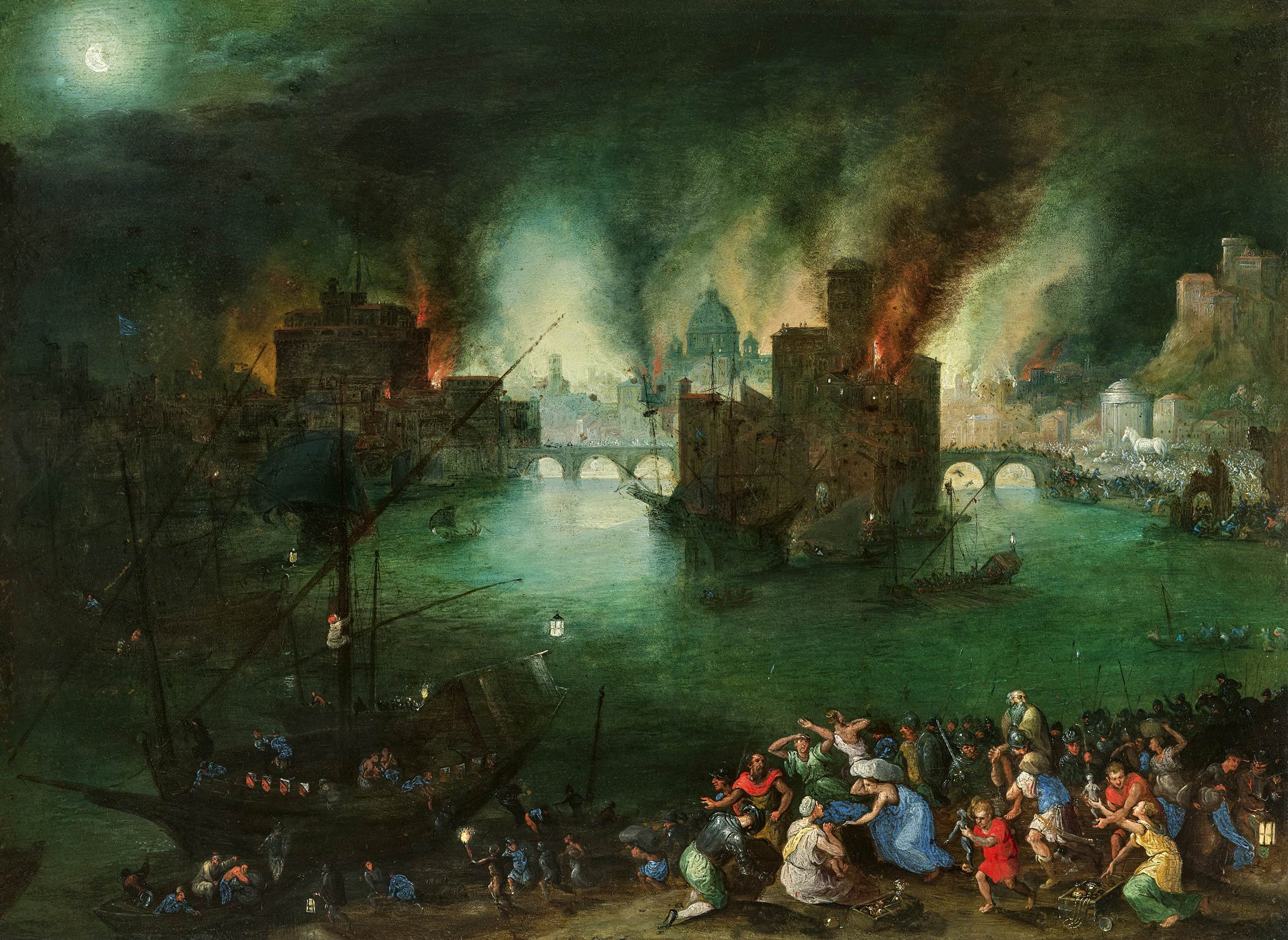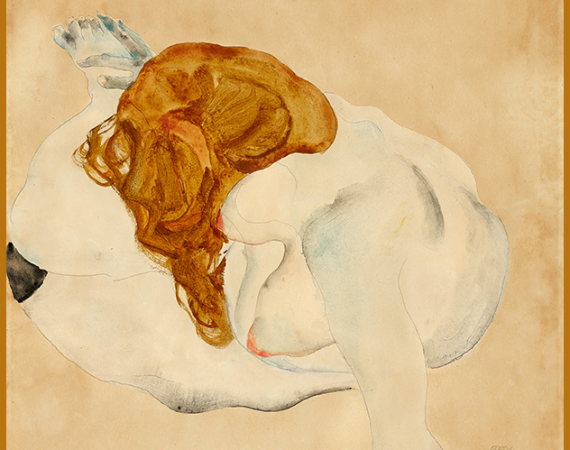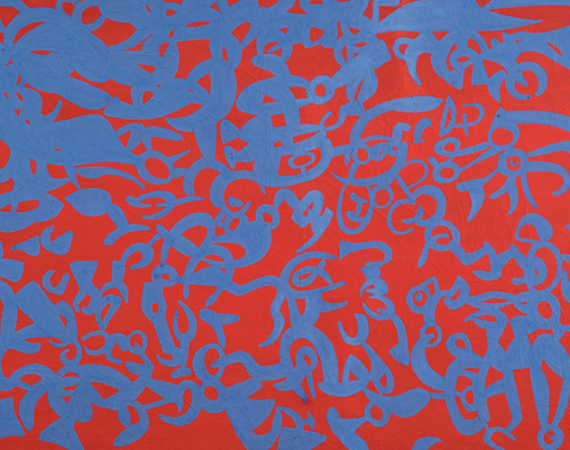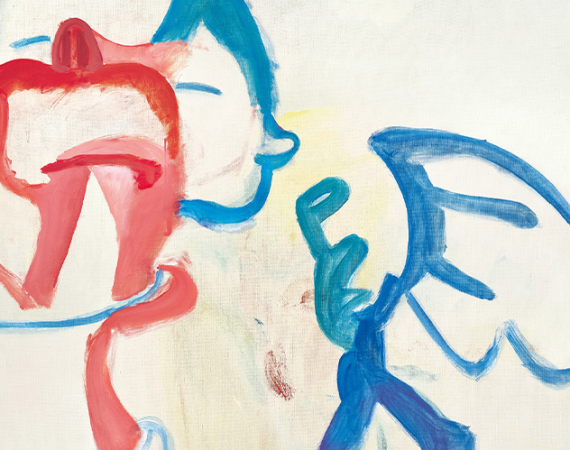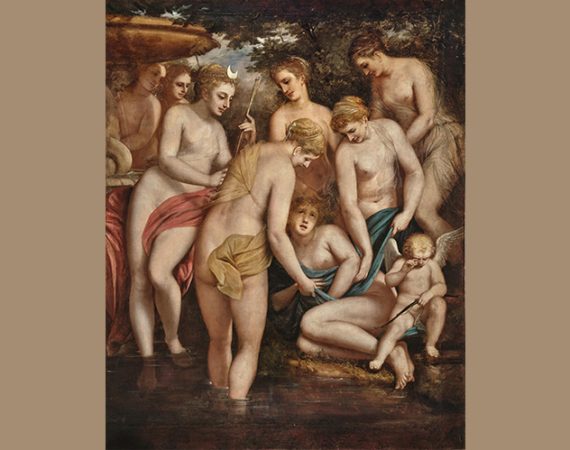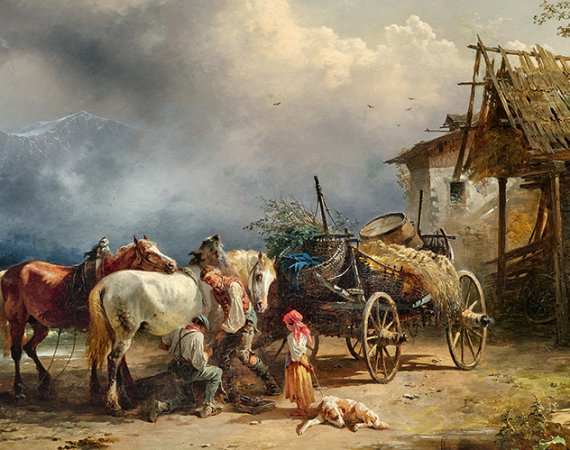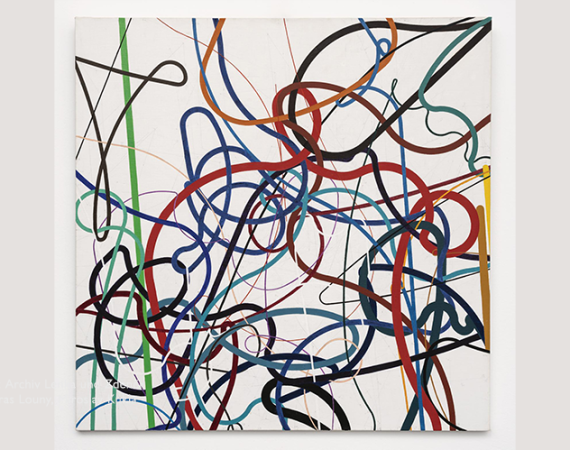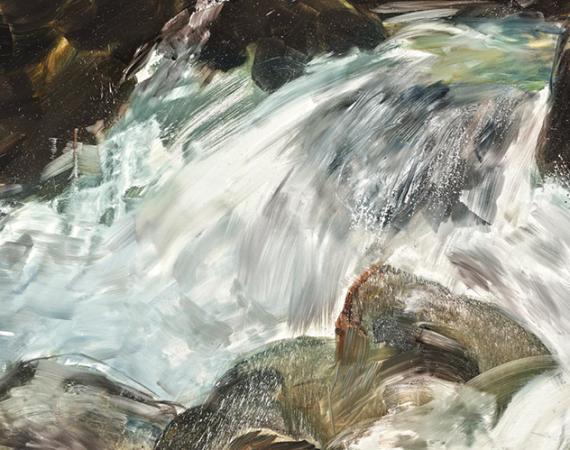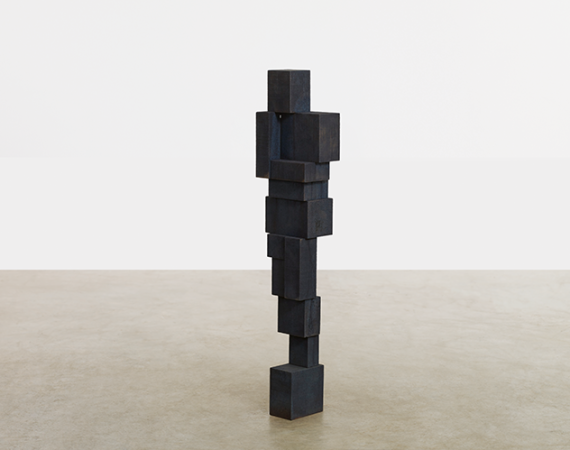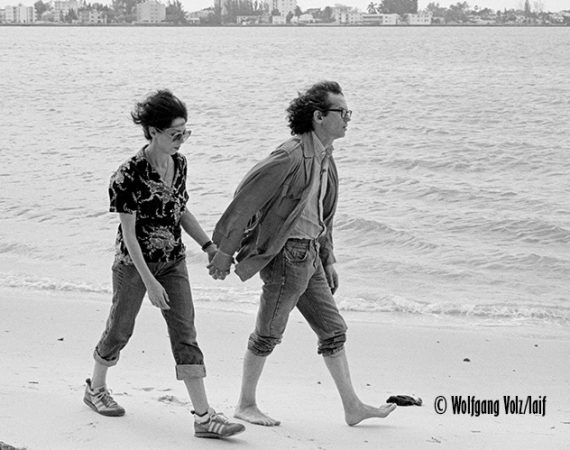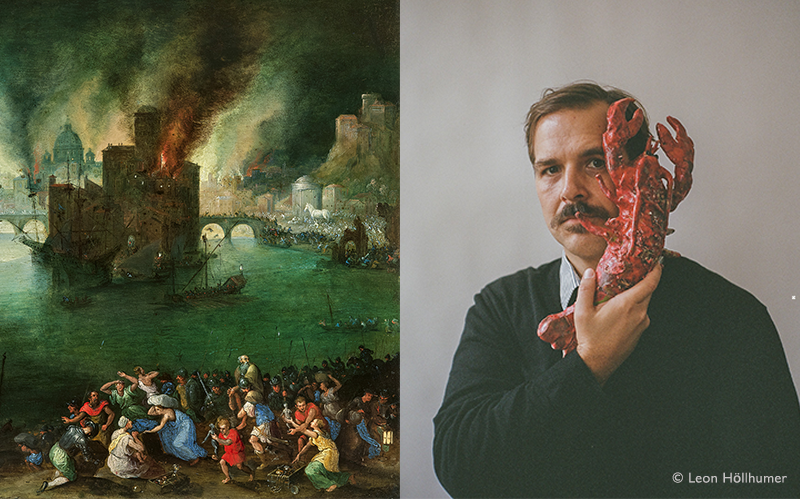
Burning Troy outside the window in Vienna’s Leopoldstadt district … What happens when a “restaurateur” suffers from a painful sensitivity to shadows, when, in the black of night, he sees Vienna as many cities at once and things begin to fall apart? Inspired by Jan Brueghel I (1568–1625) painting Aeneas and Anchises fleeing the burning Troy, Ferdinand Schmalz, in the latest instalment of our literary series, uses his singular command of language to make the darkness glow.
recently in broadest daylight, i paused briefly on a knee, that i had not noticed previously, on a knee there at the channel, to enjoy the sunlight there, glistening bright, as i heard behind me, someone croak. lying there, arms and legs stretched out, fingers and toes spread, a gaunt man, akin a tan-addicted sun worshipper. that i should walk out of the light for him. that the shade’s unbearable to him. yes, that just as some are plagued by light he’s plagued by shade-sensitivity, yes, that he had developed a downright sensitivity to darkness. so it spoke suddenly from him, although he’d been working as a conservator all his life, with materials, art objects, with paintings, that had been to the utmost sensitive to light, that he had only been allowed to restore in dark or dim rooms, and may have thus developed that shade-sensitivity. just as the paintings he had restored could be damaged by the very finest glimmer of daylight, so he as well, the conservator, might be damaged by the most inconspicuous trace of shade. just as daylight had blinded the top varnishes of paintings he restored, the shade attacked his top layers, the most delicate zones of his skin. i therefore should get out of the sun at once, because that shade, that i was causing, that shade, as it projected on him now, as it fell down from my body onto his, was causing him insufferable pain. especially now, at day’s end, he had to, the conservator, use the final sunbeams. to suck up all the light into himself, before the night with its darkness descended again upon the city. i better imagine, that the night with its blackness had something particularly intimidating for someone like him, the conservator, someone with his sensitivities, with his shade-irritabilities. he had some daylight lamps at home, dozens of daylight lamps, to get in a few hours of sleep at night, because sleeping in total darkness was completely impossible for him. “just make sure to take care of your shadow! this shadow, yours, has touched me once again.” this waxen man barked at me. after he sat up and turned his arid body a bit towards the lower-hanging sun, he reckoned, the conservator, that sometimes it occurred to him, as if the darkness of this city was a denser one than elsewhere. that the darkness here in this city was of a rare materiality. that the darkness in this city was not the absence of light, no, that the darkness of this city was even the presence of something else, a dark substance, that poured repeatedly over everything here. that layed itself over the city, like velours, like molleton. like a dark fabric, covering the city, enfolding, wrapping up the city. a fabric rich in wrinkles, creasing pockets, dark velvet-covered pockets. yes that the darkness functioned differently here, that under its cover, under its black cape the things unraveled. yes, that it sometimes occured to him, as if the city, the city, that he loved so much during the day, like no other, as if this city became an entirely different city during the night, if he, up there, looking out of the window, there in his bedroom, illuminated brightly by the dozen daylight lamps, if he looked into the black hole in front of his window, then it occured to him as if at nighttime he saw other cities in this city so familiar to him, that in the darkness, he discerned outlines of prague, that he saw the charles bridge, he saw paris, he saw the skyscraper canyons of chicago, he saw rome, castel sant’angelo, the vatican, he saw in the dark hole in front of the window there, his window, troy burning, repeatedly looking with night blindness, there out of the window, blinded by the daylight lamps, him looking out into the night and see, troy burning in front of the window. that’s what the darkness did to his city. instead of vienna he would see troy at nighttime now. as if the image of troy burning was branded on his retina. troy located somewhere here in leopoldstadt. as if this night, that haunted the city every day, extended over cities, continents and centuries. as if it all fit into this night with its dark pockets, with wrinkles made from velours. as if this city in its night were multiple cities. once, despite the pain, caused by the darkness, he left his daylit night chamber wrapped in a chain of lights, to go outside into the night. there, where the moonlight had cut lanes into the night, where he, the dark fabric torn, where by a lantern’s glow a cone of light unfolded under the dark canopy, there he had witnessed gruesome scenes, people fleeing, tumbling over each other, hateful types going at each other’s throats. so he, the conservator, had stumbled even deeper into this night, that everywhere where light revealed it, only offered horrors for him. he, the conservator, who had only sought the light like a moth, to escape the terrible terrible darkness, was forced now to behold the grimmest settings. and the further he skeltered into this now suddenly completely unfamiliar city, the brighter it got. the light flickering bright. until he noticed, when he found himself again on a large square, that seemed foreign and familiar to him at once, like a memory of something that never happened, a deja vu, scraps of a dream, on this square, a giant wooden statue of a horseman erected in its center, only then did he notice, that the city around him was ablaze. that the light, that he had followed, the flickering one, now a gleaming bright one, that it was the glint of a city ablaze. then it, the crowd of terrified escapees, tore him along. women bending over their newborns protectively, young men, carrying the old ones out of the city on their shoulders. children, protectively dragging along with them in their arms statues, like newborns. everything was pushing through the streets towards the river there. the bridges overcrowded. that’s when he went, to not be squished or trampled, towards the parapet, pushed to the edge there, climbed up, and fell, headfirst towards the river, the dark one. as suddenly, he tore open his eyes, he found himself again, sitting in his bedroom there, among all the glistening bright daylight lamps. Some might say, he only dreamed, that stuff like that might happen, especially if one like him only sleeps in the brightest daylight. but he knows exactly, that the shadow creature, that lies in wait for him out there night by night, that he escaped it one more time. therefore especially, he needed to get back home now rapidly, because the sun was already less than three fingers away from the horizon. three fingers, that means, that he needed to leave. by then he had already packed. and with the beach mat under the arm disappeared into the house entrance, there at the channel. and queasily i kept on walking on the channel, in the last light, with a soft knee.

ferdinand schmalz
ranks among the most acclaimed playwrights of the younger German-speaking generation. Born in Graz and now living in Vienna, he received the Retzhofer Drama Prize in 2013 for his debut play am beispiel der butter. His awards to date include the 2025 Gert Jonke Prize, the 2023 Arthur Schnitzler Award and the Nestroy Theatre Prize’s Authors Prize for jedermann (stirbt), a new adaptation of Austrian playwright Hugo von Hofmannsthal’s mystery play. Schmalz’s rhythmically musical language – fusing macabre humour and dialect with a baroque sense of defiance – also runs through his first and so far only novel, Mein Lieblingstier heißt Winter (2021), which was nominated for both the Austrian and the German Book Prize. A chapter from the novel had already earned him the Ingeborg Bachmann Prize in 2017. Plays such as dosenfleisch, hildensaga and, most recently, the 2025 premieres of bumm tschak oder der letzte henker (Bregenzer Festspiele, Burgtheater Vienna) and Sanatorium zur Gänsehaut (Schauspiel Frankfurt) exemplify Schmalz’s credo of “theatre as an essential collective thinking space”.

